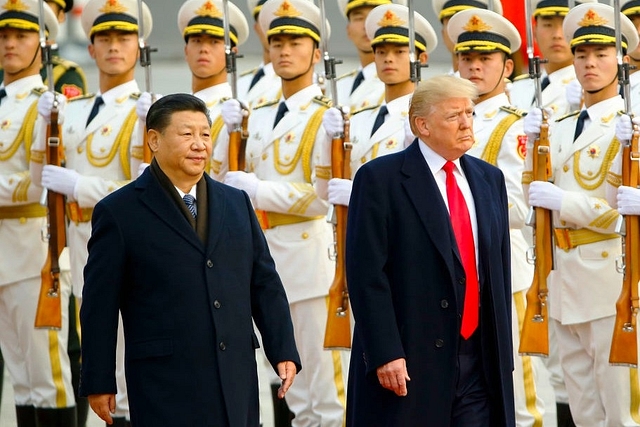
Trump’s Trade War: Gloomy Outlook For China As Many European Firms Plan To Shift Out Factories
Worried over the debilitating prospect of a protracted trade war between United States (US) and China, European companies with production based in China are considering relocating to South-East Asian nations as a part of risk mitigation strategy to secure their supply chain from disruption , The South China Morning Post has reported.
Yesterday (19 September), US President Donald Trump fired yet another salvo in the ongoing confrontation over trade with China by announcing a fresh set of tariffs on imports of Chinese products to the US. The 10 per cent tax on about $200 billion of Chinese imports will come into effect on 24 September and a steeper rate of 25 per cent will be imposed at the end of the year, according to administration officials. The tariffs are targeted at a vast swathe of goods ranging from luggage to seafood.
The Chinese Ministry of Commerce has vowed to hit back with retaliatory tariff measures against the US.
The South China Morning Post based its report on a survey by European Union Chamber of Commerce in China.
The survey findings, based on 200 respondents, indicated that almost 54 per cent of those surveyed believe the US tariffs will cause considerable disruptions to the global supply chain while 7 per cent of the respondents indicated that they have already moved or are in the process of moving their production facilities out of the Chinese mainland. These numbers could rise dramatically as some companies are ascertaining the likely impact from the trade war before taking a decision.
The survey also painted a gloomy outlook for Chinese economy as a prolonged trade war is likely to slow down economic growth, result in millions of job losses, less trade, higher production costs and weaker demand in China.
The South China Morning Post report also quoted Mats Harborn, president of the EU chamber in China as saying that “European companies have for a long time been stifled by the efforts of China’s reform deficit, and now they are taking collateral damage from the US-China trade war,”
The companies are planning to shift to South-East Asian nations such as Vietnam and Philippines to ensure that the additional tariffs do not result in spiralling production costs.